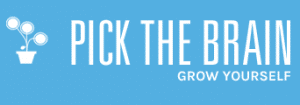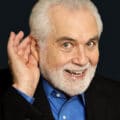Aug 8, 2018
Pick The Brain

Maestro Maull wrote a thought leadership article for Pick The Brain, a self-improvement site that covers different topics including art, health and self-directed learning.
Music is present during virtually every activity in our daily lives. Whether you’re in an elevator, waiting in line at a drug store or shopping for new shoes, music is likely playing around you. But ask yourself this, do you really listen to this music, or do you simply hear it? Chances are, you’re doing the latter.
Why is the distinction between hearing and really listening so important? For many of us, learning to listen intently and give our undivided attention to music can benefit many areas of our lives. As I’ve observed in thirty years of teaching active listening and classical music appreciation, when people begin to really listen to music, and classical music in particular, they become better listeners and communicators in their jobs, relationships and beyond. The benefits of learning to listen intently are really endless.
Many folks think they need special training to understand classical music. I argue, while not all of us can be virtuoso musicians, we can all be virtuoso listeners. For those looking to reap the benefits of listening to classical music, I’ve outlined seven steps you can take today to help you become a better classical listener.
- Make a decision. The first step in active listening is to simply ask yourself: “Am I really listening?” This sounds ridiculously obvious, right? But we actually have a decision to make. We have to decide if we are we going to multi-task – which includes even just thinking about other things – or, are we going mono-focus and give the music our undivided attention.
Read the rest of the article on Pick The Brain.







